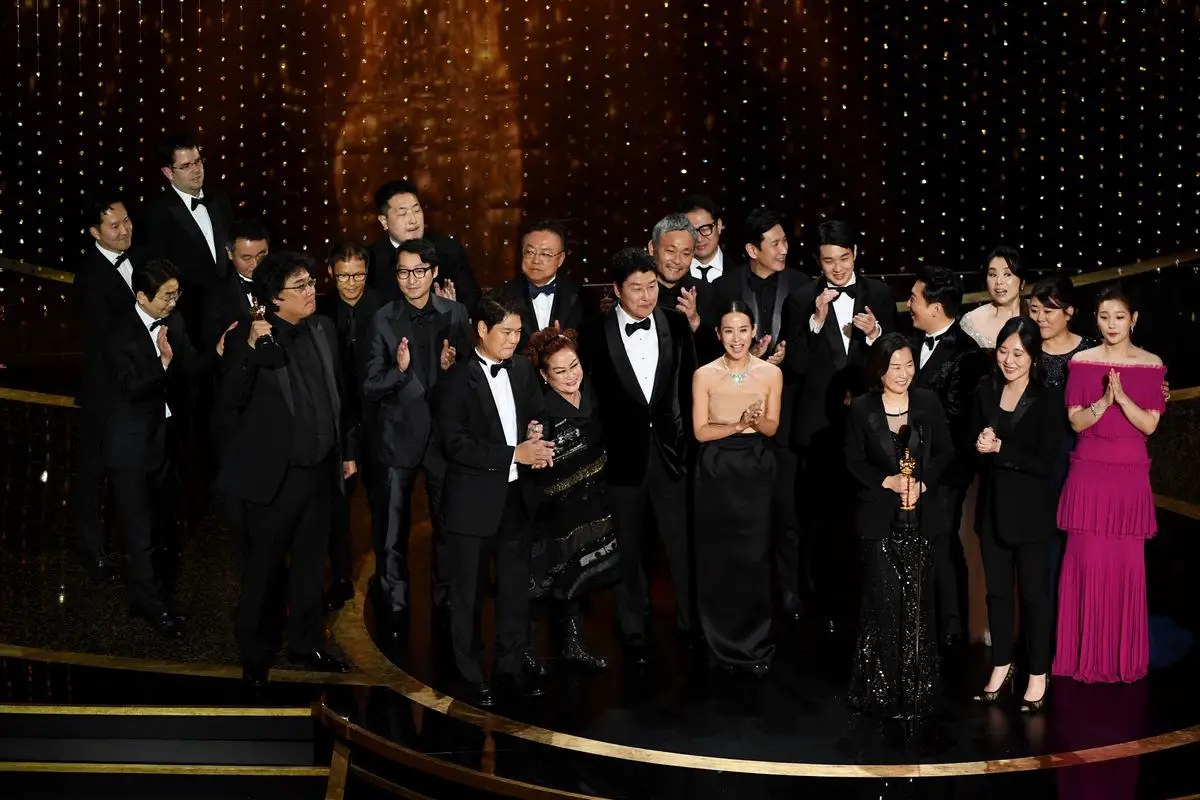For decades, society has fought to achieve more diversity in the workplace, in schools and in sports — and film and television award shows are no exception. The Golden Globes, Emmys and Oscars are among the biggest award shows that have faced scrutiny for their lack of diversity time and time again. Given the history of award shows, society may be fighting a losing battle.
During the early 20th century, people of color were not as accepted by the film industry as they are starting to become. People of color had few opportunities to star in movies or television shows, and oftentimes they were prohibited from occupying the same public spaces as their Caucasian counterparts.
In the late 1920s, the first Oscars ceremony was held; the Golden Globes and the Emmys followed suit in the 1940s. During this time, racial oppression, white supremacy and segregation were at an all-time high — a potential source for the lack of diversity and inclusion in today’s award shows. Like many institutions in society, award shows were not designed to benefit people of color. Rather, they were started for the advancement and benefit of white elitists.
In 1940, late American actress and comedian Hattie McDaniel attended an Oscars award ceremony held at a hotel in Los Angeles for her groundbreaking performance in the 1939 film “Gone with the Wind.” At the time, the hotel that hosted the event was segregated and maintained strict rules prohibiting the admittance of African Americans. Somehow, McDaniel was granted entry, but she was forced to sit in the corner rather than at a table with the rest of her castmates.
Rumors claim the Oscars may have been named after Oscar Micheaux, a late African American director and producer who developed 44 films throughout his career about the racial injustices and everyday struggles of African Americans. While it is one of many theories that the famous award is named after Micheaux, it would be a shameful irony if the Oscars were named after a person of color in spite of its incredibly discriminatory past.
Now that social expectations have started to shift, people are demanding award shows break decades of tradition to provide people of color a chance to advance their entertainment careers.
As people of color begin to dominate the film industry, many audiences are confused as to why television and movie awards are not being presented to more people of color, as they work tirelessly to make a name for themselves in entertainment. The consistent lack of recognition that award shows have shown actors, actresses, directors and producers of color has led Twitter users to popularize the hashtags #OscarsSoWhite and #EmmysSoWhite to express their disappointment toward the awards industry as a whole for their lack of equality and representation.
Many could argue that award shows are not important and should not impact creators of color or members of the LGBTQ+ community, but to many, the awards represent more than a statuette. Minority creators who have constantly had their hard work overlooked by award shows may begin to internalize the defeat. A lack of acknowledgment from large organizations like the Golden Globes, Emmys or Oscars could discourage creators over time and push them to give up on chasing their dreams and perfecting their crafts.
However, after years of criticism for a lack of diversity and inclusion, award shows have begun to make small strides toward what they consider to be equality. For example, more people of color have been invited to host various award shows and assist in announcing the nominees and winners of various categories. Unfortunately, giving host positions to people of color does not make a show diverse, and it diminishes the worth of minority groups. How does it make sense that people of color qualify to host the award shows, but not to win the awards?
Giving minority groups positions as hosts without also providing them with the opportunity to win awards indicates that the entertainment business feels as though people of color are only welcome as “the help” and continues to promote how the industry has always benefitted whiteness over other races.
The Oscars has outlined its new “representation and inclusion standards,” which, come 2024, it will start implementing in an attempt to match the diversity of the population and make inclusion a reality in the entertainment industry.
At some point, the new inclusion standards may bring about another layer of conflict because if films are required to meet certain expectations, directors may be prone to seek people of color to be a part of their team just so they can qualify for nominations. People of color would then only be recruited to be a part of a film or television series because they meet a criterion and not because filmmakers and award committees genuinely believe the individuals are talented.
NBC, the network that typically broadcasts the Golden Globes, has announced that they will not be broadcasting the award show in 2022 after the Hollywood Foreign Press Association (HFPA) could not provide a timeline for a diversity and representation reform plan on time. Other conflicts were unresolved.
Tom Cruise and Scarlett Johansson are among the celebrities who have shown their disapproval for the lack of diversity in award shows, and they have stood in solidarity with people of color in the industry who have not received their flowers for their hard work. Cruise returned three of his Golden Globes and Johansson spoke out against the misogynistic culture of the HFPA.
While award shows may be making some progress in terms of achieving diversity and fair representation, they have not made as much headway as society would like. As long as people continue to support prejudiced organizations, their award shows will continue to maintain their elitist cultures and be less likely to grow along with society.
The change will not happen overnight, but if voting committees are diversified, people continue to demand change and support is pulled from organizations who refuse to implement diversity and inclusion, then there is a strong chance that actors, actresses, producers and directors of color may have the opportunity for fair acknowledgment in the coming years.

















